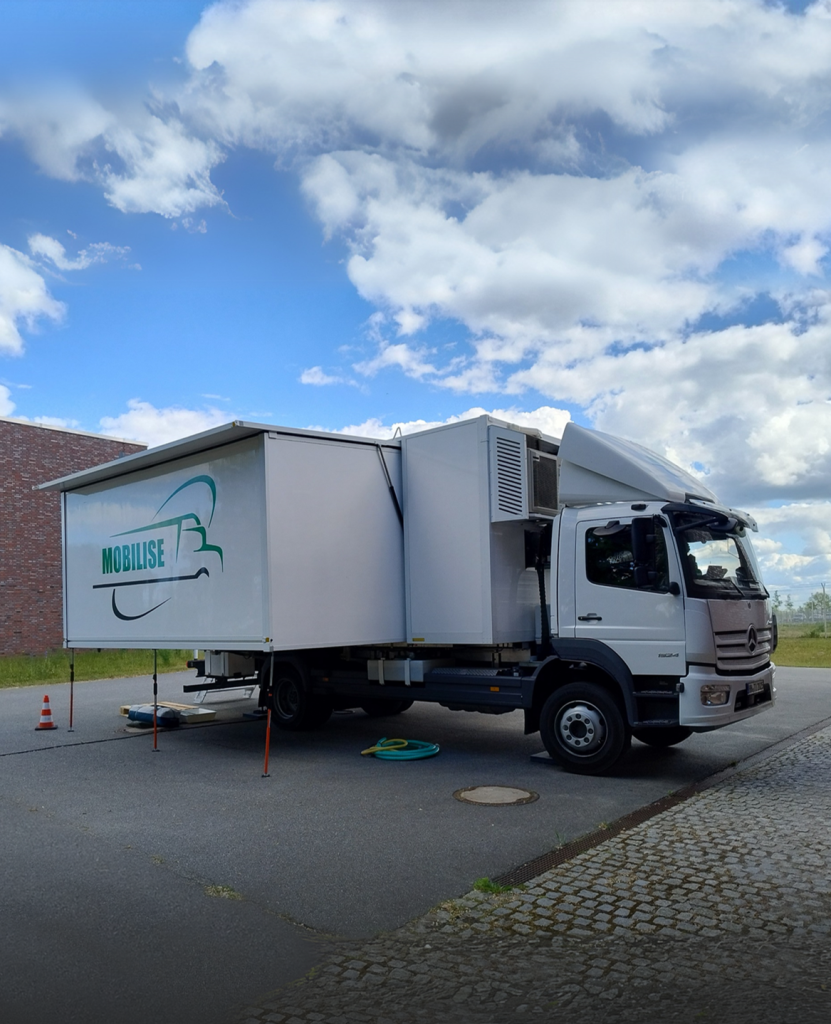
Climate change is transforming Europe’s disease landscape. Rising temperatures and the spread of ticks and mosquitoes are pushing once-rare viruses—like Crimean-Congo haemorrhagic fever, West Nile virus, Rift Valley fever, and Dengue—into new regions. These are not just human health threats. Many are zoonotic, spreading between animals, humans, and the environment.
Current responses often focus on clinical diagnostics in hospitals or fixed labs. But that approach leaves a critical gap: remote outbreaks are harder to detect, slower to contain, and more likely to spread if we ignore the full One Health picture (One Health links human, animal, and environmental health, promoting cross-sector collaboration to tackle shared health threats).
What the MOBILISE Project Does?
MOBILISE is an EU-funded Horizon Europe project creating a novel, mobile One Health laboratory for integrated outbreak diagnostics.
Unlike traditional labs, MOBILISE’s mobile units will:
- Accept samples from humans, animals, and the environment
- Perform molecular diagnostics, serology, microbiology, and whole genome sequencing
- Use AI-based decision support software to help national agencies coordinate emergency response across borders
- Run on an electric or hybrid truck platform, supporting EU climate goals through energy-efficient design
This approach combines the latest technologies with real-world usability—ensuring the lab works just as well in a rural farming area as in a national emergency operation centre.
Key Benefits
- Quick deployment: Labs can be mobilized within hours to outbreak locations
- High containment levels: Equipped to handle high-risk pathogens safely
- Broad diagnostic capacity: Capable of testing for multiple pathogens, providing essential data for decision-making
- Green, self-sufficient energy systems: Powered by solar, wind, and battery storage
- Support for integrated outbreak workflows: Works alongside national agencies and existing protocols
- Real-time dashboards and alerts: Decision Support System provides timely, coordinated communication
- Modular and expandable: Adaptable lab design with attachable space and optimized safety zones
What We Found – and What We’re Trying to Fix:
To understand existing lab capacity, MOBILISE mapped 193 mobile laboratories across Europe. The results:
- 66% are civilian-operated
- 88% focus only on human diagnostics
- Just 11% meet accredited quality standards
That means few labs are truly prepared for One Health outbreaks—or for high-risk pathogens requiring biosafety level 3 (BSL-3) precautions.
MOBILISE addresses this with:
- New rapid diagnostic tests designed for use inside BSL-3 gloveboxes
- Machine-readable formats for safe, contactless results
- Standardised, scalable systems that can be deployed across EU Member States and partner countries
Where We’re Testing It
To ensure the lab works in practice—not just in theory—field trials will be conducted in:
- Austria
- Germany
- Greece
- Tanzania
Each test will validate not only the equipment but the coordination system that makes rapid response possible.
Innovation with a Green Footprint
MOBILISE is the first mobile lab of its kind designed with green engineering principles:
- Built on hybrid/electric trucks
- Includes low-energy workflows and equipment
Compliant with the European Green Deal
